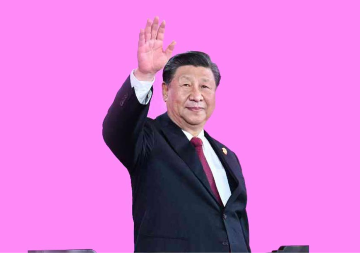With the shift of the media landscape from traditional forms to converged digital platforms where the written word, audio and video are available at the click of a keyboard button often free-of-cost, service providers, regulators and governments face several key challenges, particularly relating to the pricing and regulation of creative content. In an attempt to analyse and understand the convergence of the media economy in India today, ORF organised a round table conference on July 19. The discussion revolved around the cooperation between different forms of involvement by the state, the platforms and content generators; and the impact that convergence has on economic viability for consumers and providers.
Mr. Pradip Baijal, former chief of the Telecom Regulatory Authority of India, stressed upon the importance of convergence in the Indian scenario - though defining it in contemporary literature are next to impossible. A semi converged network - with a unified service licences to telecom operators - increased India’s telecom growth from 0.2 million telephones a year to over 20 million telephones a year. Another important aspect in the convergence was the ‘mafia’ influence. In the early years of the development of broadcasting, the provision of cable network was controlled by Haji Mastan’s men, which made regulation an issue. Regulation of broadcasters was essential, and had to be undertaken using a loophole in Section 2 (K) of the Telecom Regulatory Act, 1997. Mr. Baijal touched upon the idea of the pricing of content - and reflected that content could should only be priced - through intellectual property laws; and the use of these laws would provide the proper environment for convergence. In conclusion to his keynote speech, Mr. Baijal reflected upon the need to deal with the impact machines have on humans, and the need to create alternate jobs for humans who have last out to machines - this can be done using the content industry.
The conversation that followed included Mahesh Uppal – a consultant for telecommunications; Anish Dayal, advocate, Supreme Court of India and Solicitor of the Supreme Court of England and Wales; Arijit Chatterjee, Chief Strategy officer, NDTV Convergence; and Abhinandan Sekhri, Co-founder of Newslaundry; moderated by Maya Mirchandani, Senior Fellow, ORF.
Subsequently, the participants were invited to question, rebut and comment.
The following issues emerged from the ensuing discussion:
Content vs. carriage
The panelists agreed upon the need to regulate content hosting platforms - by using self regulation to manage content. Mr. Sekhri added vehemently that the government should not be given the power to encroach upon the basic liberties of content. Mr. Dayal added to the regulatory aspect of this discussion by going into the intricacies of the ‘Canvas of Regulation from a Converged Perspective.’ For him, and the other panelists, content and carriage are completely separate, and there is a need to analyse the media policy where carriage regulation should be essential - however there should be no crackdown on the content that the carriages provide; instead moral codes of self regulation are essential for the industry to flourish. Dr. Mahesh Uppal added that the idea of defamation, piracy and privacy do not come from convergence but are in turn exacerbated by it and thus there is a need of regulators who understand the nuances of the industry - and are thus competent enough to deal with the functionality.
Regulating platforms
The consensus on the issue of convergence and regulations channelled the discussion towards the business aspect of content creators and providers. For Mr. Chatterjee, there were two major questions - is the internet the new media or the mainstream media, and as a strategist for a content company - where is the piece of content being consumed? Both these factors are essential to the business aspect of convergence - as it has caused a five-fold increase in the monitisation power in the case of NDTV. Mr. Chatterjee adds that the Indian internet network is the least monitised, while remaining a leveller on the aspect of content provision. However, if the platform is allowed to dictate the pricing and the impact of the content - the levelling facet is disrupted. Abhinandan Sekhri elaborated on the emerging idea of consumption through subscription in the Indian market. However, before it is established, the governance aspect should evolve to be a changing exercise that keeps laws up with the nature of the society. The advancements in technology has altered consumer behaviour, yet the biggest challenge that we face is creating the distinction between news and content - as news platforms are now competing in the content market, but it’s upto to the user to realise that distinction, and to the providers to position the products in a way to make them compatible.
Mr. Chatterjee clarified that he is not asking for greater regulation of platforms, but is interested in exploring mechanisms to establish a level playing field for monetization between content creators and the platforms that host them.
Convergence and regulation
Dr. Uppal provided a series of recommendations to improve the business aspect of convergence. He believes that it is a mistake to see convergence as a technological construct as functionality has not converged yet. Furthermore, the regulators need to pay heed to the functionality aspect; yet these regulators should be independent and not state operated - the state should only provide a framework for regulation. Another important facet of the regulatory body is to maintain the sustainability of the business - and not their job to guarantee people a living. For Dr. Uppal, content regulation is not important, however the creation of an environment where minorities could voice their opinions is essential. We must realise that good regulation is great for the business but bad regulation has huge costs that increases the risks to cause damage to the freedom of expression of alternative voices.
Fighting fake news
The discussion ended with a heated conversation between members of the audience and the panelists - where the members of the audience brought up the idea of content on whatsapp, and the silver bullet of shutting down of the internet in situations that could lead to violence. It concluded with all panelists agreeing that this silver bullet is not the answer, and freedom of speech is essential. While applications like whatsapp are not content providers, the role of regulation would be to ensure robust competition, and prevention of the spread of content (whether opinion, or fake data) in the name of news.
The views expressed above belong to the author(s). ORF research and analyses now available on Telegram! Click here to access our curated content — blogs, longforms and interviews.




 PREV
PREV

